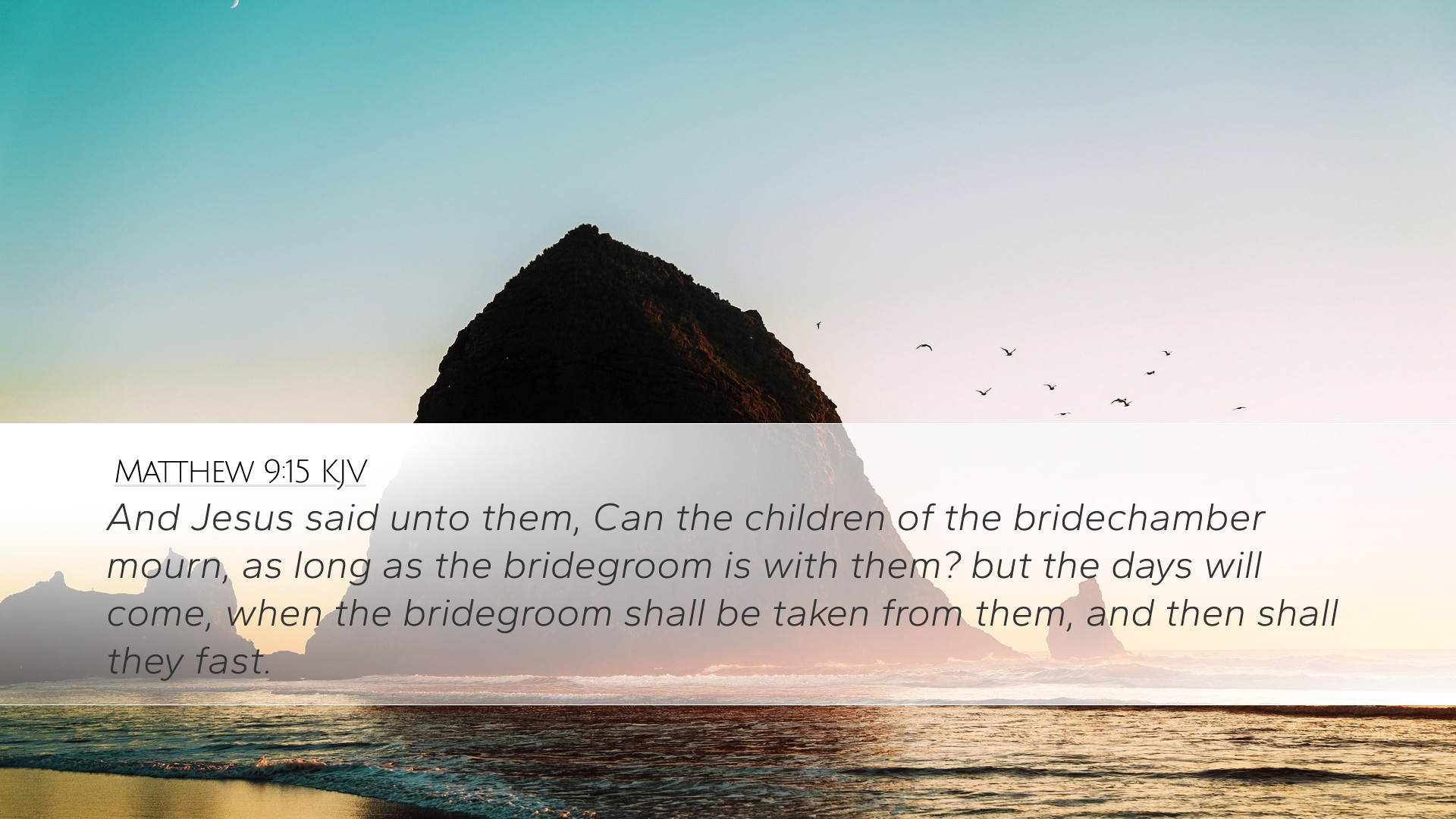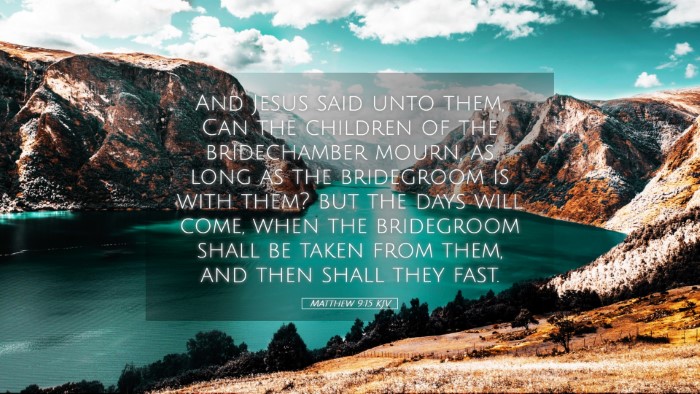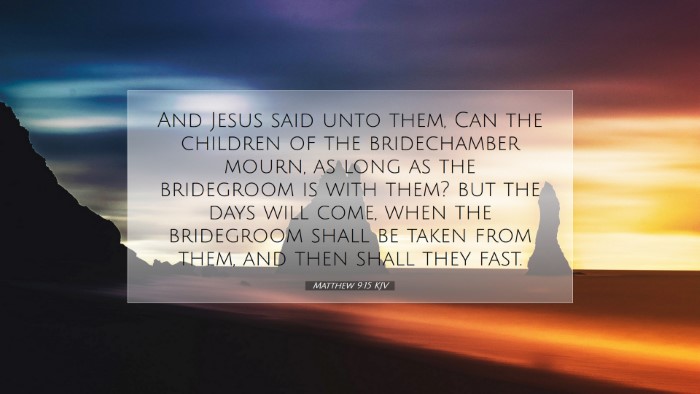Commentary on Matthew 9:15
Verse Text: "And Jesus said unto them, Can the children of the bridechamber mourn, as long as the bridegroom is with them? But the days will come, when the bridegroom shall be taken from them, and then shall they fast."
Introduction
This verse provides a profound insight into the nature of Jesus' ministry and the response of His followers. The metaphor of the bridegroom is significant, highlighting the joy of His presence amid the anticipated sorrow that follows His departure. The various commentaries lend perspective on the theological implications of this passage and the nature of fasting and mourning in the context of Christ's work.
1. The Context of the Passage
The commentary by Matthew Henry emphasizes understanding this verse within the broader narrative of Matthew 9. The question arises regarding the purpose of fasting and the role of joy in the life of believers. Jesus uses the metaphor of a wedding feast, which was a time of celebration, to illustrate that His presence among His disciples was a cause for joy. Henry asserts that because Jesus, the bridegroom, is present, His disciples do not need to fast; instead, they partake in the joy of His ministry.
2. The Symbolism of the Bridegroom
Adam Clarke elaborates on the significance of the bridegroom analogy. In Jewish tradition, the bridegroom’s presence brought joy and celebration, similar to how Jesus, as the Messiah, brings spiritual joy and fulfillment. Clarke argues that the coming of Christ fulfilled the longing of Israel and highlighted the error in the Pharisaic practice of fasting. Instead of mourning, the disciples are encouraged to embrace the joy of being in relationship with the Messiah.
3. The Nature of Fasting
Albert Barnes offers a detailed perspective on fasting in this context. He notes that fasting is typically associated with mourning and seeking divine favor in times of distress. However, with the arrival of Jesus, the emphasis shifts. Barnes points out that true fasting comes from a place of spiritual longing for God, but the disciples are presently filled with His presence. Therefore, fasting during this time would be inappropriate. He stresses that while fasting serves a purpose in the believer's life, it should not overshadow the joy found in the relationship with Christ.
4. Future Anticipations
The latter part of the verse introduces an important shift: "the days will come, when the bridegroom shall be taken from them." Henry interprets this as a prophetic reference to the crucifixion and ascension of Christ. The anticipation of His departure calls for a future response from His disciples—a time of mourning and fasting that reflects the absence of Christ. This duality enriches the understanding of Christian life; mourning for Christ’s absence should be coupled with the joy found in His ultimate victory through resurrection.
5. Application to Contemporary Believers
Understanding this verse within the context of Christian living today reveals the balance needed between joy and sorrow. Clarke's remarks on the joy of salvation encourage believers to not remain in the bygone days of sorrow but to live in the light of the resurrection. The reality of Christ's victory invites believers to express enduring joy even amidst trials, and the intentional practice of fasting can be redirected towards a deeper longing for holiness rather than mere ritual.
6. The Disciples' Identity
By identifying His followers as the "children of the bridechamber," Jesus affirms their new identity in Him. Barnes articulates that the relationship between Christ and His followers is intimate and celebratory. This relational aspect emphasizes the call to live in continual communion with God, wherein fasting can be seen as a vital expression of seeking God, but not an end in itself. Followers of Christ should celebrate the new identity that comes from being part of His bride.
7. Conclusion
Matthew 9:15 encapsulates key theological themes: the joy of Jesus' presence, the appropriate context of fasting, and the future hope of His return. These insights from Matthew Henry, Albert Barnes, and Adam Clarke contribute to a richer understanding of the text, reminding pastors, students, and theologians alike of the joyous call to live in relationship with Christ while also preparing for the inevitable moments of mourning when His presence feels distant. The call to fast becomes a means of drawing nearer to Him, filling believers with the joy that transcends all circumstances.


